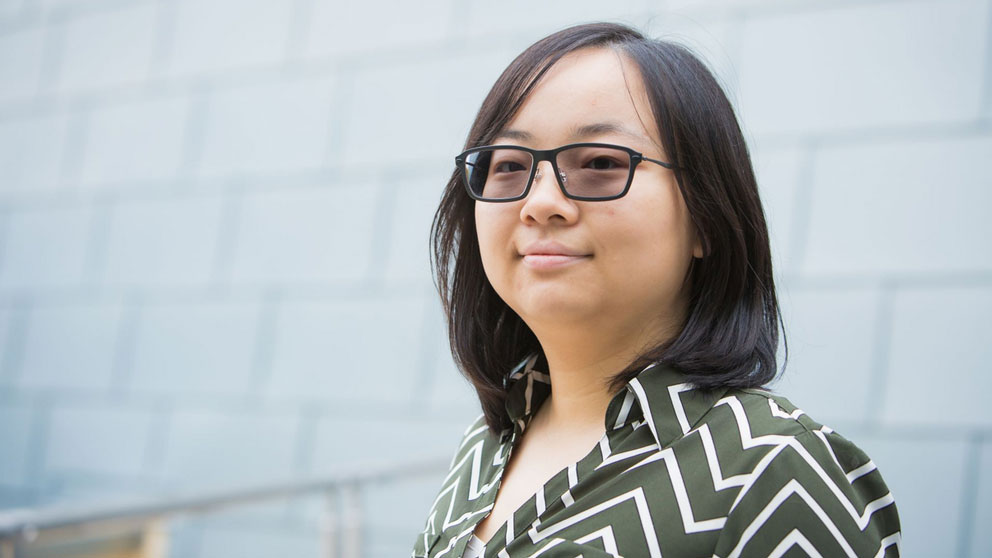
Sheng Li is a cancer researcher at The Jackson Laboratory for Genomic Medicine. Photo by Tiffany Laufer.
Jackson Laboratory (JAX) Assistant Professor Sheng Li was chosen as a 2020 NextGen Star by the American Association for Cancer Research (AACR). She is one of 12 early-career cancer researchers recognized for their outstanding work and future potential.
The award winners will give talks at the AACR’s annual meeting in late April, which covers the latest discoveries across the spectrum of cancer research. Li will present “Somatic mutations drive specific, but reversible epigenetic heterogeneity states in AML” on Tuesday, April 28, as part of a major symposium on “Metabolism and Chromatin Deregulation in Cancer and Cancer Heterogeneity.”
Epigenetic marks chemical compounds that are added to or removed from DNA, they play important regulatory roles in gene expression without changing the DNA sequence. Li applies computational methods and genome technology to understand the inner workings of cancer cells, focusing on the genetic and epigenetic cell-to-cell variability that drives cancer initiation and progression, particularly in blood cancers. Her talk will focus on her discoveries regarding how mutations in the DNA sequence can generate various epigenetic states in different cancer cells from leukemia patients and mouse models, a trait that has important implications for treatment regimens.
“I’m excited to apply advanced computational techniques to accelerate discovery in the epigenetics field,” says Li. “Epigenetic modifications play important roles in both healthy and disease states, and understanding their mechanisms across the genome is important for progress in general genome biology as well as human health.”
What is epigenetics?
Learn how epigenetic changes can affect an individual — without physically changing their DNA sequence.